7 Things That INFJs Experience as Children
INFJ children are a rare and unusual breed. They make up less than 1% of the US population, and often report having felt “odd”, “misunderstood”, or ostracized as children. That’s why I think it’s especially important to have a grasp of what it feels like being in an INFJ child’s mind. If we can take the time to understand these children then we can improve their chances of accepting themselves and reaching their potential.
Not sure what your child’s personality type is? Take our new questionnaire here!
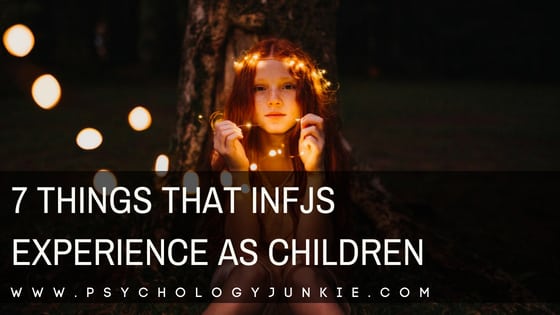
This article contains affiliate links. I only recommend products I truly believe in.
Table of contents
Estimated reading time: 9 minutes
7 Things That INFJs Experience As Children
#1 – A Hesitancy To Accept Things at Face-Value
While the rest of the world seems to step out into their environment with certainty, easily believing that they will be supported by the walls, floors, and structures around them, INFJs second-guess everything. What is an illusion and what is real? What is the meaning beyond these concrete, tangible items? They want to transcend the material world, look beyond the senses, and beyond the limits of time itself to understand the over-arching meaning of everything. While most other children are focused on what’s happening now, INFJs are trying to figure out what “now” is in relation to everything else. In fact, what does it even mean to exist in “the now”?
Childhood can be a magical time for any personality type. All children are blessed with imagination, and they are all still trying to figure out what’s real and what’s not. But INFJs tend to take longer than other types, especially sensing types, to discern what’s real and what’s not. It’s not unusual for INFJs to report that as children they wondered ceaselessly about the nature of reality and what their place was in the theater of life. What holds the earth in the sky? Why is it held there? Why was I brought into existence? INFJ children tend to take the role of “miniature philosopher” very seriously.
#2 – A Desire to Decode Dreams
While other children might be happy with the whole “dreams don’t make sense and that’s okay” line, INFJs don’t usually subscribe to that. Introverted Intuition, the preferred mental process of the INFJ, is all ABOUT unconscious symbols and imagery…that’s right, the stuff you find in dreams.
In the words of depth typologists Leona Haas and Mark Hunziker,
“Introverted Intuiting is the keeper of the so-called sixth sense. Unexplainable information can take the form of hunches, clairvoyance, abstract intuition, and messages from the unconscious.”
Also…
“Introverted intuiting is the only perception process that is independent of the conscious mind.”
– Leona Haas and Mark Hunziker, Building Blocks of Personality
Now I’m not saying INFJs are psychic, although many experience strange feelings that seem psychic. There’s nearly always a reasonable explanation for those feelings, though.
Dreams, however, are taken very seriously by young INFJs. They analyze the symbols, the images, the underlying themes, and look for messages that might be important to them. In fact, Carl Jung, the founder of personality psychology, referred to introverted intuitives as “the mystical dreamers and seers” of the world.
#3 – A Strong Understanding of Other People’s Emotions
INFJs are extremely affected by harmony, conflict, stress, or anger. They are very empathetic children and are particularly tuned into the emotional environment of their families or classrooms. One of the reasons they enjoy solitude so much is because they can separate themselves from the overwhelming emotions of other people. ]
INFJs tend to feel responsible for other people’s feelings like they have to “fix it” if things are bad. This is thanks in part to their auxiliary function, Extraverted Feeling. At a young age, this function isn’t very well-developed yet, so it feels overwhelming and stressful for young INFJs to tap into frequently.
Psychologist David Keirsey says of INFJs,
“This type of Idealist has strong empathic abilities and can become aware of another’s emotions or intentions – good or evil – even before that person is conscious of them. Such mind-reading can take the form of feeling the hidden distress or illnesses of others to an extent which is difficult for other types to comprehend.”
– David Keirsey, Please Understand Me
Young INFJs are so conscious of how other people are feeling that they can have difficulty understanding how they themselves feel. At times, this empathy can be a gift. They may know just what’s bothering someone and what to say to encourage them. Other times it can be a curse, and they can feel overwhelmed by emotions they don’t understand because they aren’t their own.
This is one of the reasons it’s very important for parents of INFJs to give them plenty of alone time and to keep the environment as conflict-free as possible.
#4 – Distraction
INFJs are drawn to complexity on a constant basis. Remember how I said they don’t take anything at face value? Well, that certainly applies to their interactions with people. INFJs analyze what people are saying to them, always looking for hidden intentions, meanings, symbols, and significance. And if they’re on their own they can get so lost in their imagination that the outer world becomes silent to them.
This can mean that one of two things happen when you’re talking to them:
1 – The young INFJ is so focused on analyzing what you said in the first two minutes of the conversation that they lost track of what you’re currently talking about.
2 – If they are playing on their own, they can be so lost in their imagination and ideas that they didn’t realize you said something to them or gave them a direction. This adds up to them being very confused fifteen minutes later when you said, “but I TOLD you to come in for dinner!”
#5 – Intense Frustration Over Interruptions
INFJs have a difficult time switching gears in childhood and adulthood. They like to fully immerse themselves in what they’re doing. They frequently get into a meditative, calm, focused state when they are analyzing, creating, or imagining. It’s as if the rest of the world goes quiet and everything seems peaceful yet alive. When someone bursts in on them during these times, they can seem annoyed, irritated, or overwhelmed. They may cast off their normally kind-hearted disposition and seem surprisingly harsh or sarcastic. That’s because when they’re in these states they are usually tapped into their dominant function, Introverted Intuition, NOT their feeling function, which comes second.
Basically, it takes them a while to revert back to the “I’m around people, so I better tap into their feelings and their needs” phase.
#6 – Perfectionism
If you see a young INFJ repeatedly balling up the story they are writing, tossing it in the trash, and scowling furiously, then you might have caught a glimpse of INFJ perfectionism. Young INFJs have extremely idealistic hopes for the projects they create. Bringing their ideas out into the world is often stressful and time-consuming for them. They feel that the real thing “must” live up to their idealized image. It doesn’t help that they tend to have complicated, substantive projects in mind and not simple ones. They can re-work, throw away, modify, adjust, and correct their project so many times that they end up in a state of exhaustion.
If you’re the parent of an INFJ, it’s important to give them some space when they’re working creatively. If they’re not happy with what they’re doing, continue to give them space, even if you feel like you must step in. INFJs tend to be very sensitive about their work and won’t want feedback until they are ready to ask for it. And they will ask when they are ready most of the time. When they do ask for feedback, try to be as positive as possible and give specific compliments, not generalized ones. If they want suggestions, be sure to mix criticism with praise for what they are doing well.
Related: The INFJ Workaholic
#7 – Loneliness
Young INFJs soon discover that most of the world doesn’t operate in the same way that they do. Not every other child wonders about the nature of reality, why they exist, what this symbol means for that future, or what will happen in 50-100 years. Not everyone gets these sudden “hunches” about what will happen that they can’t explain because it hasn’t sorted itself out yet. INFJ visions, so clear inside their mind, often come across as halting or rambling in person. They may feel they know something very strongly and feel as if they must tell someone about it, but then be met with ridicule, skepticism, or mocking when they finally do.
Almost every INFJ I’ve spoken with has at one point in their lives come to a realization that their way of seeing the world isn’t generally accepted or understood. They often come to a point where they learn to keep things inside and they begin to question everything that comes naturally to them. It is extremely rare for young INFJs to find a like-minded individual who understands them, shares their feelings, and trusts their insights. You can find out more about INFJ loneliness here.
It’s important for parents of young INFJs to take them seriously, to answer their questions, to not belittle their process or “rush them along” when they’re trying to explain an insight. With encouragement and open-minded acceptance, INFJs can be catalysts for positive change in the world.
What Are Your Thoughts?
What have your experiences been as a child? Do you have any thoughts to add? Let us know in the comments!
Want to Book a One-on-One Type Consultation with Me?
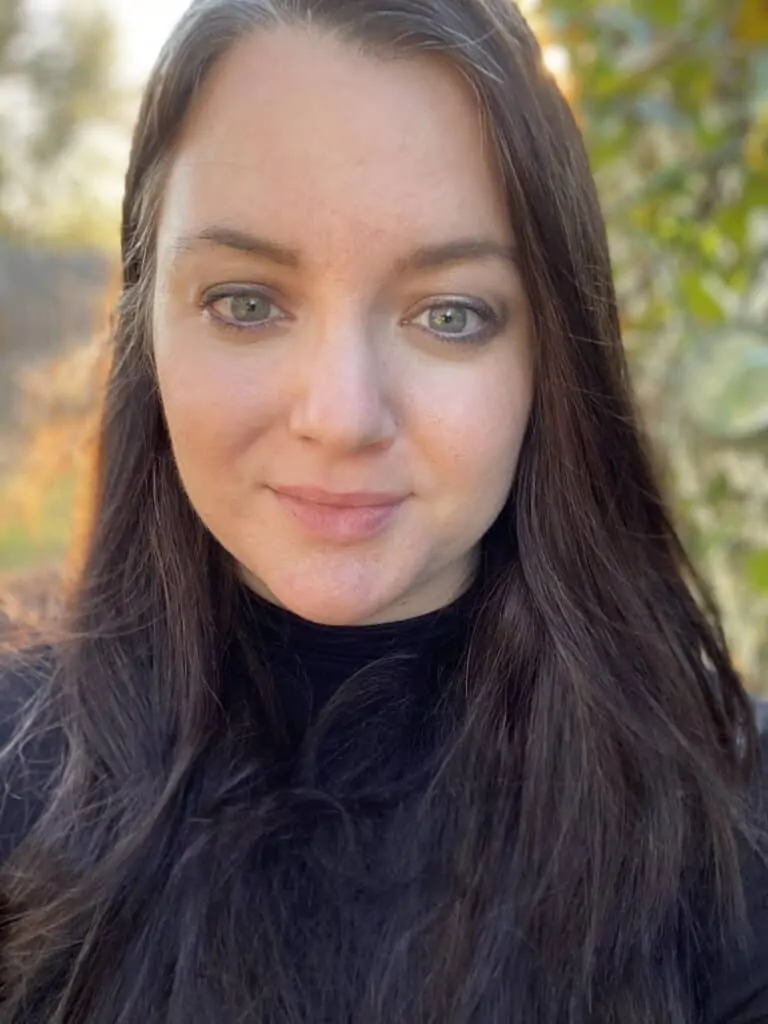
Not sure of your personality type? I can help you! As the founder of Psychology Junkie and an MBTI® practitioner I’ve spent over seven years helping people discover their true personality type. Use the scheduler below to book a session with me!
Want to Find Out More About the INFJ?
Check out my eBook, The INFJ – Understanding the Mystic.
Want to Discover Your Child’s Personality Type?
Check out my eCourse, Parenting by Personality Basics.
Other Articles You’ll Love:
7 Reasons Why You Need an INFJ Friend in Your Life
10 Ways INFJs Can Boost Their Creativity
3 Weird and Wonderful Secrets About the INFJ
10 Things You’ll Relate to If You’re an INFJ
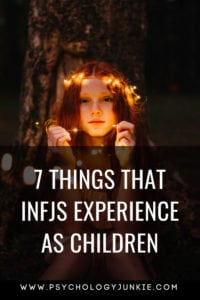
Subscribe to Our Newsletter

Want to discover more about personality type? Get the inside scoop with Susan Storm on all things typological, along with special subscriber freebies, and discounts on new eBooks and courses! Join our newsletter today!




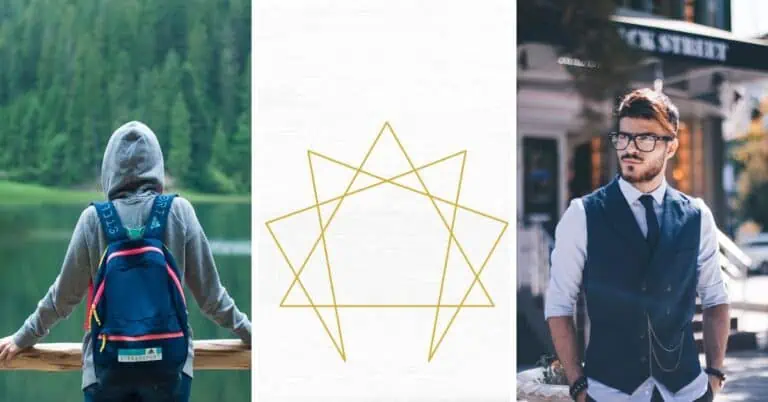
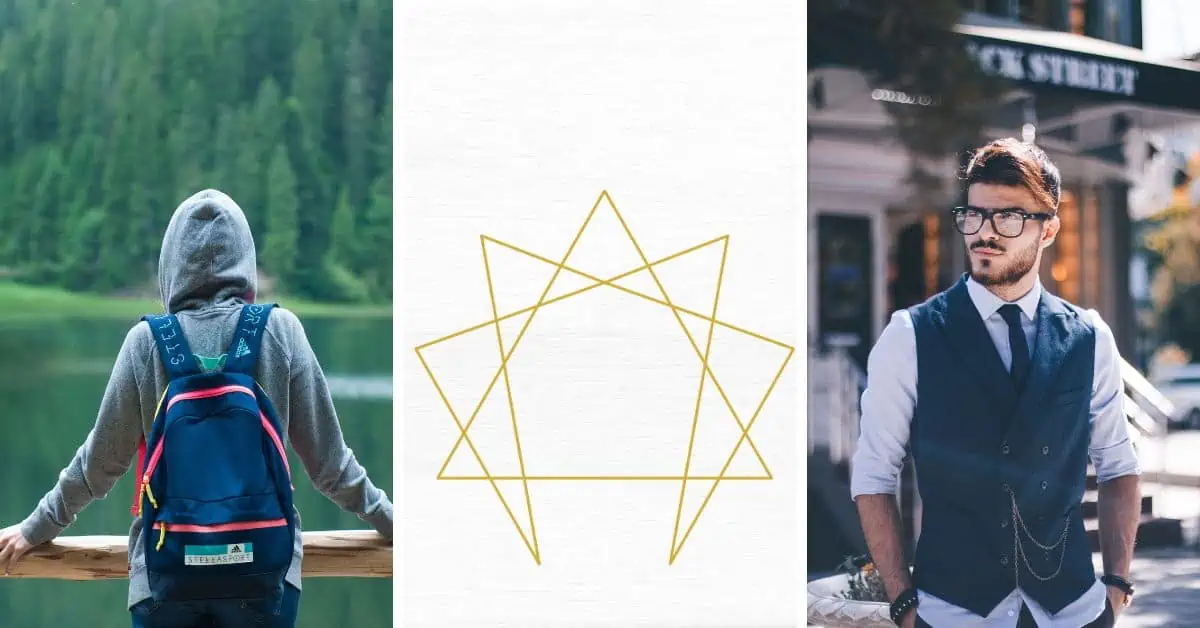

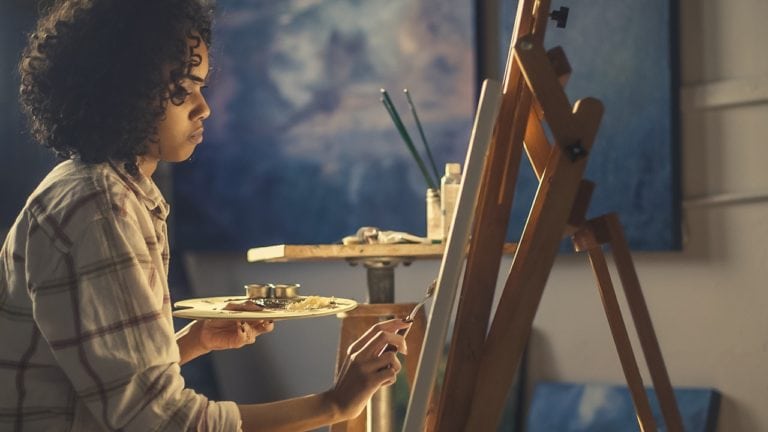
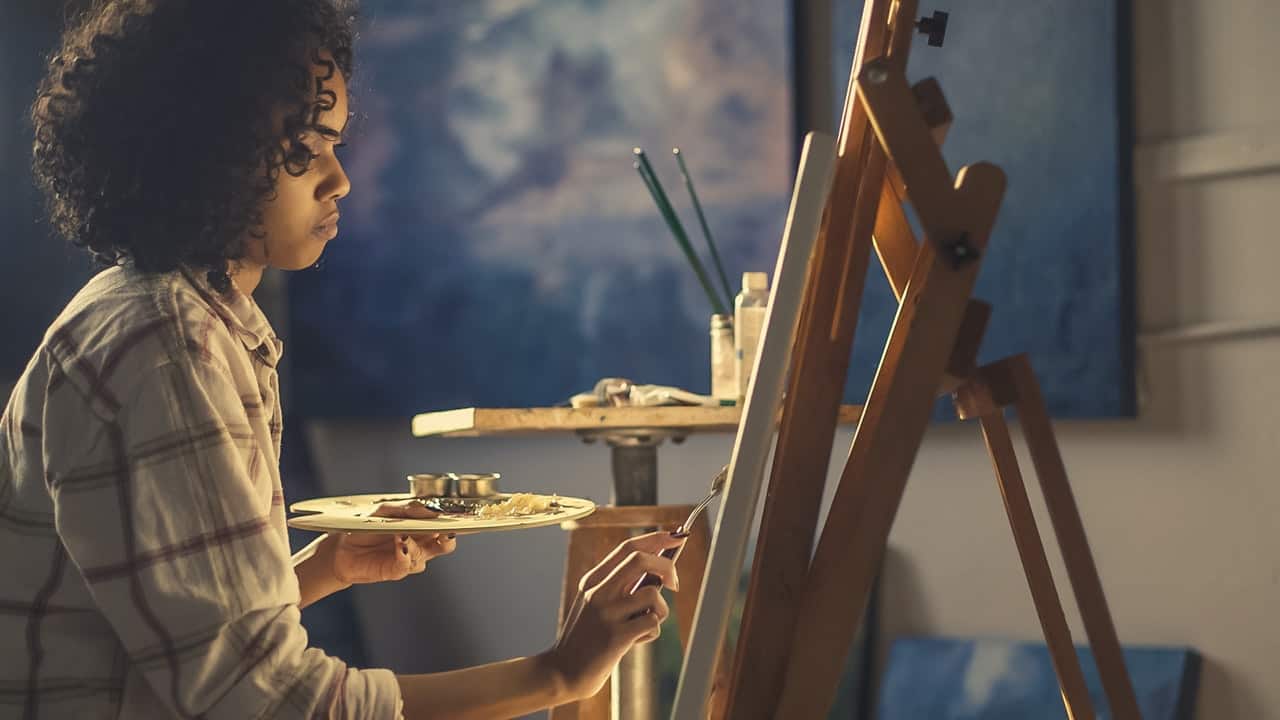
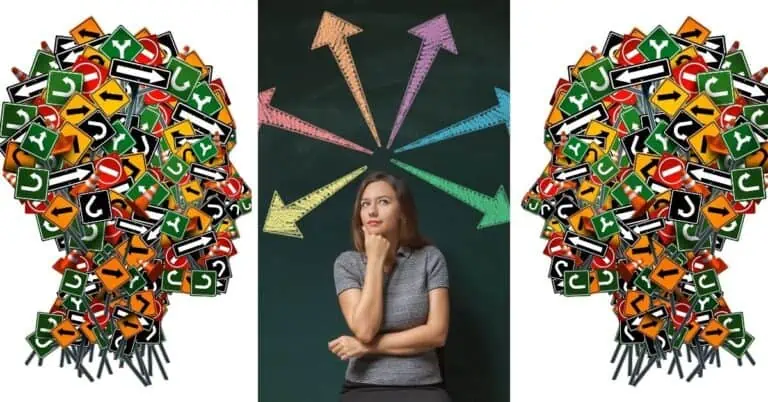
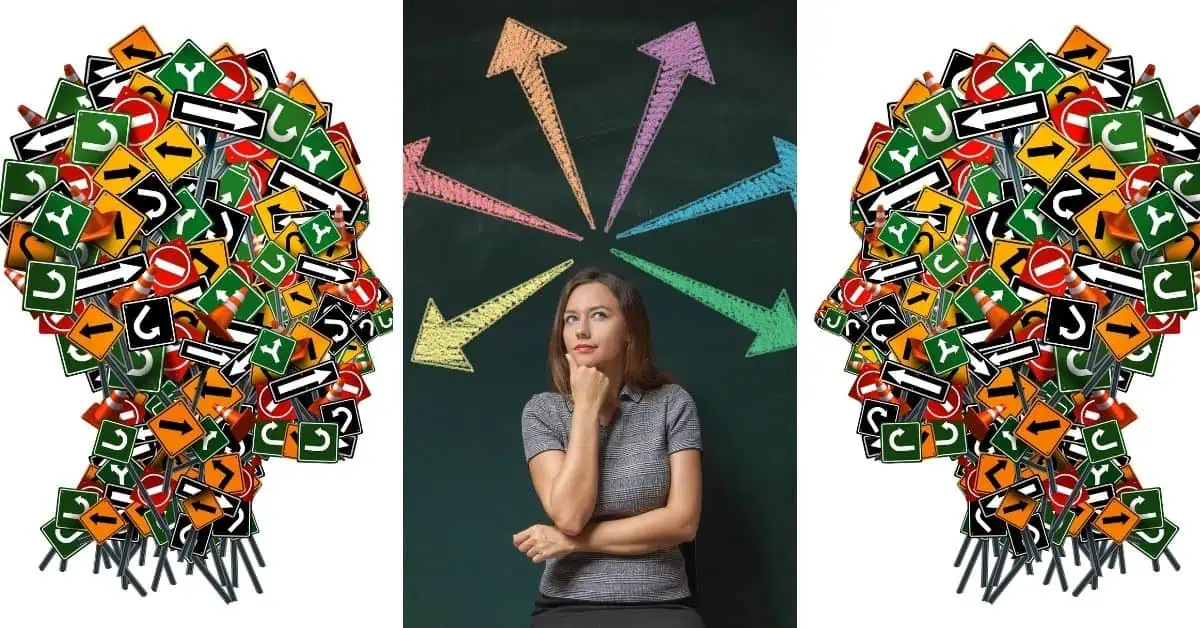
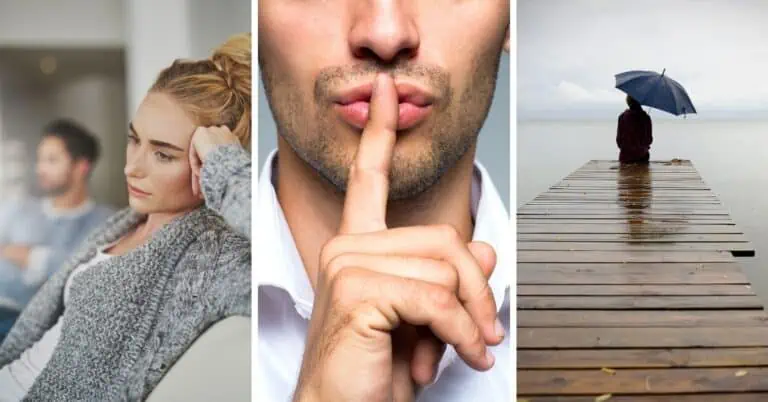
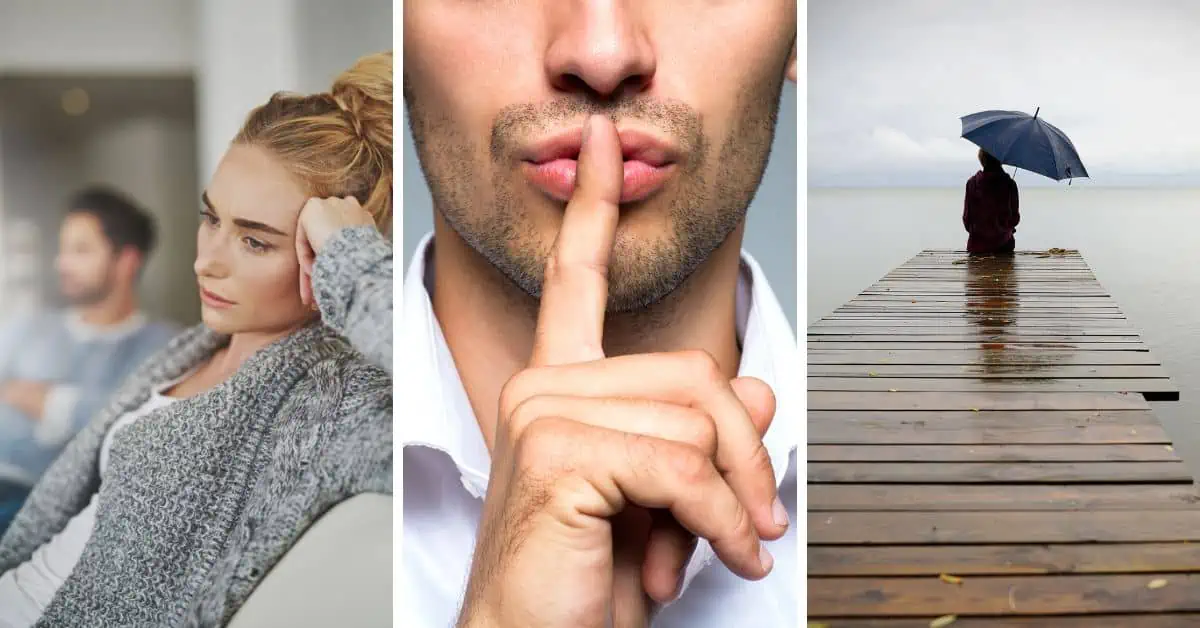
7 things that INFJ’s experience as children by Susan Storm. This is a wonderful article. Its right on target and those 7 things carry over into adulthood. The right brain mode is my sanctuary. And so true that when in conversation with someone I am also studying their body language and reading it. As if I become a part of it.
I can tell you numerous stories that match every single point multiple times. Kinda wild reading it.
Well written.
So much of INFJ is me. But I think 54 years of OCD has tweaked my way of doing things that I often type as an INFP. But I believe I was born an INFJ. Truth Beauty and Uplifting others were my watchwords until 21 when thet became Truth Beauty and Knowledge. Knowledge is a wonderful thing, another way to experience Truth and Beauty and….a powerful weapon against OCD.
For you see…after 54 years of OCD, yes it was in my life for 20 years before I even has a name for it …I have learned this….1. If you can definitely it, you can set parameters. 2. If you can set parameters, you can make rules. 3. If you can make rules, you can control it . Life is a ballet between Truth, Beauty and the rest if existsnce. Notice I do not include Live because Truth and Beauty are Love.
If you can define it, you can set parameters. 2. If you can set parameters, you can make rules. 3. If you can make rules, you can control it. Notice I do not include Love because Truth and Beauty are Love.
INFJ here. I can relate to all of the above.
The explanation of experiences INFJs have as children and as adults is so familiar to me. Reading these articles has helped me to better understand why I am the way I am so has been of great benefit. Re experiences, I remember as a very young child of maybe 5 or 6, worrying about where all the garbage goes. I finally decided that I didn’t have the answer because off my age but adults having more years and experience knew what to do with all the garbage. Then I grew up and I knew better.
Another thought I had throughout childhood is who is really up and who is really down in respect to the Earth and space. I always thought that we all perceive that we are upright but we may really be upside down in space. A lot of my thinking as a child was of that sort.
I always felt like an outsider who never really belonged. Sometimes, when joining in to a conversation already in progress among my friends, I feel like an interloper. I have always hated conflict and try very hard to avoid it. My childhood was very difficult for me because my parents frequently had loud, noisy arguments.
I have always been extremely sensitive to the needs and feelings of other people. As a result, I have, at times, misjudged any negativity I pick up as being a judgement of me. I am also affected by experiencing others’ pain much too strongly. I call this being overly empathetic. Since this has literally made me sick in the past, I find I have to shield myself by limiting my asssociation with other people who by their conversations and nature, draw me into their problems. This has been such a problem for me that I lose sight of who I am and feel like I am living other peoples lives rather than my own. I find myself exhausted and spent rather than satisfied. When I do get involved in activities I enjoy, I lose all consciousness of time and don’t want to stop what I am doing.
I genuinely love people but don’t like to spend a lot of time in social activities in large groups. I also am comfortable in confiding in only one or two very close friends who I trust to understand who I really am. I have written a lot of poetry, designed and fabricated jewelry, love to sculpt and to draw and paint. However, it takes me a lot of time to share my creations because I feel as though I am exposing a piece of myself and it is never good enough.
One skill that has always benefited me is my ability and need to think outside the box both in creating what is new and in resolving issues. My sensitivity to other peoples’ feelings has benefited me tremendously in my work environments too. Having worked in Human Resources, I have consistently been able to give truly constructive criticism and state orally and in writing negative feedback with enough tact to produce desired good results rather than offend.
One problem I still have is that I crave to be accepted and loved for who I actually am rather than the person people think I am or think I should be. I have extremely high standards for myself but am much more reasonable with others. Perhaps that is the source of my strong and currently unsatisfied need to feel loved. Since I don’t fully approve of or love myself, I don’t feel genuinely loved by others.
Oh my.. your last paragraph is precisely what I have been struggling with for so long. I want to be understood and loved for who I am, but it’s just not possible for some unknown reason. I’ve tried so hard, but I just can’t force myself to spend the rest of my life trying to measure up to who someone wants me to be instead of the real me. So I’ll be alone forever.
Super true. Especially #5. I find people are often startled to see that side of their INFJ, it’s become humor to me now.
“I was thinking” is all I have to say, and now everyone I’ve ever leveled with, personally, understands what I mean—immediately! ?
I remember wondering as a child – why am I me? And why is this other person who they are ? What determines who gets put where ? I tried to share my questions and got only strange looks. Also when I was about 19 my parents decided to tell me about a big secret from years ago. So I blurted it out and they both looked shocked. I was shocked they thought I didn’t know. Apparently none of my siblings knew so they wondered how I knew. Just observation I guess?
I identify with a lot of these, even as an adult. At almost 35, I am finally finding interests and hobbies that I feel express the “real” me. I have struggled with feeling that I didn’t fit so often, and I am finally learning to be accepting of who God created me to be.
Still get these sometimes, but now tempered with experience and a more mature psyche. I had a hard time with self-acceptance and self-esteem younger because of these traits; took me a long time to work that out (MBTI study helped nail that down, as well as my own work on myself, spiritual and otherwise). Creativity helps – mostly singing – helps a lot.
Love this site, always good articles here. Wliwni (thank you).
Hehehe, this sounds EXACTLY like me as I was little. I remember buying my first dream dictionary with my pocket money when I was 8 years old and writing my dreams down. I also remember being off in my own little world most of the time – my teachers at school used to call me ‘the absent minded professor’. Reading this, suddenly a lot makes sense. Interesting read!
This was such a beautifully written article it almost made me cry. Yes it’s right on all points, being almost 60 and people having know idea about this personality back in the 60s, I was always ridiculed by others, not my parents, the loss of my parents was the biggest trauma of my life. As a child you learn to hide these things from others and I’ve only just realised I’ve hidden most of these things about myself all my life.
I’m so sorry that you were ridiculed and have experienced so much pain. I’m so glad that this article has been some kind of encouragement and I appreciate you giving me your thoughts on this! Much love to you <3
I didnt know I identified as INFJ until recently. And I must say it helps me understand more about myself. At 36 I still consider myself the weird one. I am often misunderstood. I have learnt that I am different to others ,in my thinking so sometimes i just keep my mouth shut.
I knew, so very young, that I was different from other kids. They knew it too and didn’t let me forget it. Having that ‘rich inner life’ common to INFJ’s was a real benefit and still is when I feel lonely in a room full of people. I had wonderful, loving parents but, I wish they could’ve read this article when I was a little girl. It might have saved a lot of tears. As an adult, I like who I am, even when I feel lonely. The world is so beautiful, especially the one in my head!
I resonate a great deal with this article, painful as it is. Even at 42, I am still that child. I have progressed in many ways, but I struggle even now with family and friends. They are happy I am a part of their life, and yet they don’t know what to do with me.
Yup, yup, yup. You hit the nail right on the head again, Susan. I am so intellectually lonely. I am so tied of being misunderstood. Of being laughed at and dismissed and then watching tragedy unfold because folk didn’t take me seriously. Same as when I was a kid. Few folk we’re interested in my thoughtful ramblings. I was such a reader. I remember the Golden Book Encyclopedia. I so enjoyed reading the whole thing and so dissapointed when I finished. I am a lover of on fiction. I wish there was a group of INFJ’s where we could swap thoughts and theories. Serious open-minded discussion about non fiction things. About projects , idess, theories we had.
But I found INFJ groups to be mostly whining. I wish they would stop whining and “oh poor me, no one understands!”. Of course they don’t!! You’re INFJ! Get over it and start celebrating yourself instead!
That group sounds very, very fun. I have a Facebook group for NF types and it might be a good place to bring up some of your ideas! https://www.facebook.com/groups/NFDreamers/?ref=br_rs
This post made me take a step back in time. It’s almost like I could feel all of the emotions that I felt as a child going through each and every one of these points. They still resonate strongly with me as an adult, although I think I am noticing that I have shut out our shut down some of the feelings I feel because they are not understood. It’s probably why I love getting lost in really good books or movies, because I can fully engage in them and get lost in the characters. I remember so many summers as a child, just spending tons of time by myself and being perfectly content. Cloud gazing was one of my favorite activities. Only every once in a while would I get lonely and go visit a friend in the neighborhood. The one person that has come close to really understanding me and my emotions is my 17 year old daughter who is an ENFJ. We relate on so many levels! I’m so looking forward to all of the conversations we will have as she and I get older.
Physically crumpling when an adult told me off, whether it was a parent or teacher.
Feeling like not even my own parents understood me, as they asked me why I couldn’t be more like my sister.
Like most people here I only found out about beinf INFJ recently and it has helped me understand and accept myself so much better.
From what I remember and my own child perspective, I remember being really secretive as a child in certain ways. When I’d write, draw or play, I would always do it away from grown ups for different reasons. I was self conscious and I always felt like I could see a series of likely events happening if I were to let them see in my vulnerably creative space and I always avoided that.
I also remember questioning everything as a kid. I’d have moments where I’d randomly asked my siblings questions only they would know to test whether they were real or not in that
I remember being able to recognize intent and emotional reasoning behind actions that were harder for others to accept. I could see and understand that my mom would say something to hurt my feelings because she wanted to hurt my dad’s feelings, because she herself was hurt. Stuff like that.
I was honestly a strange, quiet, caring little girl that felt like (and still feels like) the pain and joy of all of humanity are manifested in. It’s weird, but cool.
From my earliest memory(2yo), I remember feeling awkward(ugly duckling), misunderstood, out of place, and a burden or bother. I was often dismissed as silly, fanciful( very imaginative, day dreamer, out of touch with reality), very dramatic, or over emotional. Older teens and adults usually stopped listening to me turning back to their previous conversations or task rolling their eyes or huffing and uhuhing me or shooing me away. Younger teens and children my age usually only included me when they wanted something from me or to entertain themselves, by making me the butt of their jokes or pretending to really like me. My mother and paternal grandmother called me emotionally overwhelming, too sensitive(big baby), or drama queen, both were highly critical of me and couldn’t deal with me and my draining emotions and excessive blabber. My maternal grandmother and my daddy both indulged me and constantly showered me in compliments but were never really present and really judgemental due to being very religious. My paternal grandfather was my savior, my lifeline, my rock, he was my security blanket giving often silent but unconditional love support and acceptance. He was my refuge in this cruel cold world(He was taken from me when I was 15 destroyed my whole world). That’s the negative side though I was on the other hand considered mature, responsible, polite, helpful, and well behaved. Adults female teachers and sitter’s loved me. Mom’s/Grandmother’s with small children needing care or just entertainment, late teen/young adults loved talking to me hanging out, younger children, toddlers, and infants flocked to me in droves for peace/kindness/attention animals too. They also loved/adored me. Not to mention the bullied,outcast, weird underdogs my age they came to me for friendship. I remember feeling this need to soothe any kind of pain and show them love that someone cared it would be alright. I remember being frightened of anger and creeped out deviant vibes just wanting to run and hide. My favorite place was in my room listening to music, reading a book, writing stories, poem’s, lyrics, journaling, or day dreaming still is to this day. I question, analyze, and research everything. I have very strong values/beliefs that i stand up for but also try to see the other side so I’m not just being ignorant and closed minded. I have a sense of humor that ranges from super dumb to pretty dark. I feel everything intensely, I love deeply and unconditionally forever(even if I won’t interact with you anymore), betrayal effects me so completely it’s very physical(the hurt going straight to my core), and passionate, violently intense anger(which fuels me), I always strive for honesty(exceptions are denial to myself about things I don’t want to accept eventually I concede, exaggerating reasons for cancelling activities or events because I feel bad or shitty, and outright lying when a dr or cop ask if I did or do something illegal), I’m loyal to a fault, and very protective of my loved ones and innocents. I’m complicated(I struggle with/suffer from severe clinical depression and anxiety), I’m me.
-Sorry for the lengthy read.
I am 35 years old and recently learned of mbti, typed as an INFJ, and suddenly so many things ‘clicked’ for me! I had began to come into my own a few years ago, beginning to re-discover myself, I felt like I was so odd. I had never felt like I fit in with anyone, I feel like I was a quiet kid and didn’t share my thoughts with anyone, I don’t remember much of my childhood. But have been through therapy to process childhood trauma and abuse. I have come through all that and am in a great place.
But I feel like not having understanding parents and having a rough childhood really set me back. I am only now able to embrace how cool I am, after being told “you think too much, read too much, care too much, worry about the world too much,” and I only recently met someone who gets me, the love of my life no less ☺️.
It is important for parents to understand their children, sadly, many don’t. I have two kids, 7 and 9. After discovering mbti, I used your resources to decipher their most likely types, I seem to have an ESTJ daughter, fittingly the eldest, and an INFP son, who is such an imaginative dreamer. They are extreme opposites and it has consistently been a struggle between her rule enforcing and bossiness and his independence and imagination ????
It has helped me greatly to apply mbti to my parenting, thank you ????
I didn’t get typed as an INFJ till I was in my late 30’s. So going through life with differently minded family members, friends, and acquaintances was very stressful. I remember many times during my early teens of breaking down crying in the bathroom because I was stressed out and overstimulated. I remember taking every criticism to heart, as if they were telling me that I wasn’t good enough and that I never could be. I stopped trying to explain my ideas to people because I could never properly organize my thought process of how I arrived at the completed idea. I felt small, invisible, and useless. I felt stupid, because everyone else seemed to know what was going on and how things worked. In large groups I couldn’t even properly introduce myself, I was so focused on making sure I clearly stated my name and greeting that I would often miss/forget their name. I’ve only ever had one close friend, but I have cherished her for 30 years. It was a very long, difficult road to self-acceptance. And there are still things about my personality that frustrate me, but now that I better understand how my type does things maybe I can learn to do things my way, and let go of the idea that the only right way is to do it like everyone else.
I’m curious how do children get labeled a certain personality when they are still growing ? I didn’t take the test till in my late thirties but after reading this , thinking back as a child it’s pretty dead on.
Usually children are typed by their parents or through the MMTIC®, which is a Myers-Briggs® indicator specifically made for children 🙂
This was so insightful and absolutely true, to the point that it was a bit disconcerting.
Thank you for your research and for helping us, that make up such a small amount considering other personality types, feel as if we are not alone in our way of thinking, after all.
It is always nice to have someone say, hey, there is nothing wrong and you are not the only one thinking so!
Thank you for writing these articles. I have always been uneasy about being around people because I rarely connect with anybody and understood that I was different (not in a bad way but the whole fitting in thing always eluded me) but never understood why.
I took the MBTI for a job I had and then started focusing on it when taking psychology in college. I always P typed as an INFJ. Now it just makes me smile when I read articles and blogs about INFJ’s because now I can understand why I am the way that I am and I understand now how and why people perceive me the way they do. I’ve always wanted to be around people and be invited to things but I was never able to “perform” properly in large social settings. My person interaction limit is 2-3. Anything over that and I sit and listen and think, mostly silently. But knowing the typology of the INFJ I can look back on my life and understand almost all reactions (both mine and others to me), choices and decisions that I have made. Talk about feeling enlightened! It all makes so much sense now.
I very much appreciate your articles because I like to research everything to death and yours have given me invaluable insight into myself and others. Again, thank you. I also wanted to say I think it’s very interesting and honestly amazing that (aside from people with highly deviant behaviors) everybody falls into 16 different personality types with only a few minute inconsistencies.
I took the test and it said I was a ISTJ. I do not agree at all. I am an INFJ.
Hi just recently started learning about personality types and infj sure does explain alot of things and feel right to me.
For 25 years I worked with with a man that I became very close to and trusting. I was a young carpenter when I started to work for him, he was a master Craftsman 20 years older than I and highly respected within the trades.
We developed a father son relationship and I learned so much from him. For a number of years everything was great but as time went on things changed and I started to see the true man that he was. After years of theapy and alot of research I believe he is a covert narciss.
If I am an infj how come I didn’t see this in him. Infj can read people, pick up on things.
So hear is my question. How come I didn’t see this in him sooner??
It wasn’t until years after being ” Discarded ” I figured out kind of what happened to me. I am doing better now, I found a great therapist and I’m still learning about all that has happened and gone through.
I am 23 years old and the first time I heard of the MBTI was when I was 18 and even then I was typed as INFJ. After which made a whole lot of sense after looking more into it. As far as I know, this was extremely accurate to how I was when I was a kid. I was, and still am, a big dreamer and a super imaginative person. My parents had just accepted that and they encouraged me to think what I wanted and dream what I wanted to dream growing up. Heck even the dreaming part was crazy accurate! I cannot tell you how many times I’ve dreamt of something that seemed really important to my life in some way and I was right. Also even now when I get lost in my thoughts, it takes someone a good minute of talking to me for me to realize they’re ACTUALLY talking to me lol.
I am only 14 and I can so relate to this, my parents don’t know I’m an infj though so its a bit hard seeming their extroverts!
I’m 21 and I think I know exactly how you’re feeling right now, and if I could go back and talk to my 14 year old self there is so much that I would say. The next couple years will be hard. Try not to put so much pressure on yourself or worry too much about making friends and fitting into groups. Do what you love and people who share your interests will naturally attract to you. Don’t worry too much about what others think and don’t get obsessed with planning for the future. Try to live in the now, try new things, learn about mindfulness and meditation, take time to be by yourself. When you start having romantic relationships be careful. Set boundaries and stick to them. PLEASE don’t try to fix people..especially not boyfriends. You cannot fix anyone who doesn’t want to change. You also need to be a bit wary with who you trust– because while your energy will attract people who you will connect with; empathetic and selfless types (females especially) also attract toxic people and narcissists. Be sure to pay attention to red flags and warning signs (being pushy, asking for things, telling you how to feel, jealousy, aggressiveness, etc.). Just be aware, and remember that you CANNOT change those kinds of people nor is it your responsibility to, as long as you intend to do them no harm you’ve done all you can. Failed relationships or friendships do not mean you’ve done anything wrong. There’s nothing wrong with failing–it’s the only way you learn. Pursue things that you’re passionate about, and follow through on things that you try. You’ll come up with all kinds of great ideas and you’ll be scared to follow through for fear of rejection, fear of failure, fear of change, fear of success, etc.–remember this is just because you feel like you don’t fit into the world. You do, you’re just wired differently than the people around you, you see things differently, most importantly you feel things differently. Embrace this!! If you don’t second guess yourself others won’t either (at least not the ones that matter). You have such a unique perception and it’s your choice if you let it isolate you or if you let embrace it and share it with the world. I know you love your alone time but it’s worth it to make the effort and make some real meaningful relationships (family and some close friends), but also don’t forget that there are benefits to having friends that you aren’t super close with–I always hated these kinds of friends–but they help you set your boundaries and help you enjoy casual socialization which can be hard for us INFJs. Take good care of yourself, don’t forget: “SELF CARE IS NOT SELFISH, IT IS NECESSARY,” and be careful with your heart.
Best of luck to you!!!
Its good to know that there’s a reason I’m so different, but sometimes it feels more like a condition than a personality type.
????
Yes I totally agree. My parents had me see counselors and other people I can only vaguely remember because I was so young to “figure out what was wrong with me.” They thought I was autistic and finding that out later in life hurts in some way. Like they couldn’t just accept me for who I was.
LONELINESS doesn’t NOT come from being ALONE, BUT from being SURROUNDED by people who will NEVER UNDERSTAND me.
A feeling of ISOLATION occurs when even the person standing right next to you is UNREACHABLE!
I know how you feel. Others not only disagree with your assessment of a situation, they can’t even see it the way that you do and worse still, they don’t care. You are not alone
This is really spot on! I can relate to every single topic. Especially the loneliness, being considered as “odd” and retrieving into imaginary worlds was true for me as a child. I for example created parallel realities in my mind, integrated them into my everyday life and everyone I knew played a secret, imaginary role. That way my whole life became a play – with me being the single audience.
In teenage years it was a painful experience to learn that my insights on group dynamics or people in general were almost never welcome. Back then, I didn’t understand that it’s not “normal” to look through people and to know what’s going on for them (sometimes even better than they do themselves). In my desire to help, I reached out and in several cases I got rejected in the most brutal way. I was called a liar and an agitator and finally excluded from a whole group of high school friends, only for speaking up and telling the truth.
Growing up with a narcissistic parent made things worse. I ended up doubting my own perceptions, suppressing my intuitive and insightful nature, only using it for detecting tensions and to prevent conflict. I became the mediator of my family, playing peace-keeper and trying to create harmony by making each family member understand the others’ perspectives, often dismissing my own feelings and needs. I felt responsible at a very high level, which is a lot of pressure for a teenager.
It was not until my late twenties that I discovered how valuable and special my gift is and learned to embrace them with all that comes with it. Recently discovering MBTI at the age of thirty helped a great deal with that.
Reading the other comments, I felt touched and I can relate to almost all of them. You can see a lot of pain in every single experience and it is not easy to face the world as an INFJ – especially when growing up. However, I wouldn’t want to have it any other way. I love being an INFJ and I’m thankful for every single experience in my life, because each of them taught me a valuable lesson and shaped the person I am today.
I hope your article helps parents with an INFJ-child to give them the support they need in this challenging world. They will get deeply hurt, they will feel out of place and they will experience what it means to be different and sometimes wish, they could be more “normal”. I guess, that’s something an INFJ has to live with, but they will also learn to live through the pain and come out stronger and wiser in the end. 🙂
(I’m sorry for any language mistakes, not a native speaker….)
I being an Infj can relate to everyone’s post I am in my fifties.Looking back in my child hood. It wasn’t till my pre teens that older adults found me fascinating.My Mother always dismissed me as over imaginative..At times in my life people made me feel less than.Yet all my life I have been a magnet for children. Old people and animals. Nothing has changed. I always gave of myself freely, with love. Yet so much in my life I never received that.But it is okay,because I understand the world we live in.I may or may not be alot of things in this life, but I will never stop shining my light, I will continue to be Authentic, because that is who I am..Thank you for these posts, they are most helpful.And thank you to the Infjs who shared themselves, graciously here…
I hope to bounce out of it soon. Sometimes it’s hard to make people understand what you’re going through inside.
“Imagined parallel realities”?
Can you give examples? I’m curious.
My childhood, hmm..it’s not happy cheerful thing. I feel like I can’t blend in with kids around me, idk why. I’m shy and quiet, and I feel like I’m outside of the frame, when I was in class or in a group of kids. The more I want to make friends with them, the more I became nervous, the more I think hard how to make friends, the more I feel like burden so in the end idk what to do. And when they said meanie things to me, it makes me down and blame myself. Lol. And at same time, hating them, but I could not express it. And lol yeah when I was kid I asked myself, why am I alive? What will be my fate 20 years later? Why human do meanie things to others? Could I go to find aliens world that fit me? ????. I wish I found about mbti since I was younger..I’m 31 and just found bout it 2 years ago. I only took online test tho, and reading articles bout mbti especially infj, it feels like I found a way how to organized the puzzles in my mind. It helps me to know myself more, and realize that I’m not alone ????
What does INFJ I have read the information and the posts and can relate to do much. Angel ????Blessings
This definitely resonates with me. I had so many adults admonish me to “come out of my shell” and throughout school I was monitored for my apparent lack of social skills. I also definitely noticed early on that I could tell when someone didnt like me and also that people REALLY dont like when you can easily read people.
But as an adult in my late 30s I can honestly say its gotten better. I have people in my life who care enough to listen, to give me space, and to love me for who I am. As MBTI becomes more and more mainstream, I find I’m given language to use to describe myself that others can actually understand.
This is almost scary.
Are those aspects too uncommon on adult INFJs? I’ve been exactly this person described since I was a child, and I don’t know it it is because I am an artist, but never snapped out of these aspects.
This is by far the most accurate I’ve read about INFJs. Reading it made me understand myself more and realized what I’ve done in my past. I thought I’m just weak when it comes to emotions and so sensitive about others’ opinions of myself without knowing my own personality. Sometimes I blame myself for being so timid in front of my classmates but actually, I’m afraid of what they will feel when they talk to me or what their thoughts of me. I’m scared that they will be disappointed with me or ignore me. My emotions back then was a roller coaster and I became depressed thinking why I don’t have the guts. I cried every night because of those thoughts. To settle my feelings, I befriended people the same as me and sometimes compare myself to them and I’m guilty of feeling satisfied if ever we do projects and mine is better than them. I’m only happy if they praise my artworks. At times, I really don’t get why some of my classmates are able to do whatever they want and openly talk loudly even in front of teachers and how they are so confident. Is it because we’re in different schools before? Or they are just trained to talk openly that way without any care in the world. I think too much whenever I talk to them and try to reply to what they will like to hear. It’s awkward and it felt like I have a lot of personalities that automatically adjust when I talk to different people. I’m so sensitive to their feelings that I don’t know what to do with my own. I’m that girl in the background that listens to confident people and only talks when it’s necessary. Oddly enough, when I’m with people I don’t know, I try to be talkative and be whoever I want and it makes me happy.
when i was a child i use to be very very much into a all different world of imagination.i used to spend much time in the woods on my own, sing songs and have so many stories in my head, i use to talk in my head to what i perceived as spirit guides, or angels or spirit friends. i use to write poems and stories since i was very little, and i use to have very intense dreams that would wake me up in the night.
i did not fit in at all with kids at school, and i was bullied all the time. i moved about 5 schools and bullied everywhere, for no specific reason, maybe i just looked different and spaced out. it was very hard for me to stay concentrated in class and some teachers thought i was autistic.
many people told me that i use to come up with very profound comments and advices for them and they felt quite shocked as it felt strange to get such wise comments from a little kid.
Wow. I am in my early 30’s and I live in Lagos . I don’t know how I have just found out about this but all your articles about INFJ’s is exactly me and the weird fact that I always know what someone is about to tell me just before they do. I also have dreams that come to fruition so many times or something will just cross my mind out of nowhere like when I told my mom two yrs ago out of nowhere my two sisters will have babies by her 60th birthday which also came to pass . My family has always trusted my intuition about people but sometimes I don’t see the coming hurt for myself , just for others . Other times I do, and didn’t use to take it serious till I started predicting things and it came to pass . I am so glad I am not weird . I always wondered why I never fit in as a child with my siblings and friends . I also wondered why I could never solve simple maths but somehow always made an A+ in further maths. Amazing ! Thank you so much for this posts . Love it !
When I was a child, I did a lot of daydreaming in school. It was difficult for me to focus in school and I think the reason why was because, after school, me and my sister would go to our grandparents house along with other cousins. We would then get home by 6pm in the evening. Sometimes there were distractions at my grandparents house that I wasn’t able control. I really believe that this affected my schooling. It wasn’t until about 7th grade when I was able to fully control and understand the study habits that was best for me.
Same. Like I couldn’t pay attention to teachers and always used to feel I don’t need any teaching to understand things. I only did self study at home and used to get good grades which kinda made me self dependent.
Wow! This was me and still is. My imagination was so intense that when I wasn’t playing with other children, I would always choose to be alone in my room where I would make up very intricate stories in my head. I would stare at the wood grain on my dresser and see all kinds of images as well as my floral pattern curtains. Both of these object were so much more to me than just a dresser or curtains. I loved playing in the woods because it was not just woods to me, but a whole new magical world and time. I remember breaking a pink frosted glass and crying so hard over it. My mother told me I did not have to worry, that I was not in trouble for breaking the glass. That was not why I was crying. To me that glass was alive, it was it’s own being and I knew it was forever changed. I could go on with many other examples but I will stop here. I was always considered by my family and friends as dingy and air headed, but I know it was much deeper than that.
This is ABSOLUTELY accurate! One of the funniest parts of the article was when you mention the frustration of being interrupted. I still do this as an adult and never knew why I would become SO mad when I felt interrupted haha. Great article!
I Am also an INFJ. But teen one.
I remember all the things. My mom usually says that when I was a child, my kindergarten teachers almost said that I am a mental case. Because of my weirdness and such things, people didn’t like to be friends with me. That’s Alright as I have gradually grown up, I gradually learn things and understand the world. And my understanding of things is much higher than my age fellows. I am glad that I am INFJ. Indeed being INFJ is a blessing but yet is a curse.
As a teen INFJ,I know exactly what you are talking about.I just wanted to say, I’m both happy and sad that there are more people out there who is like me.I’m happy that there are people who understands me and can relate to me ,but I’m sad that other people has to go through same suffering as me,like constantly being judged,misunderstood,unappreciated and hated,no matter how good you treat others.
So my daughter is an infj and all of these are 100% her. She always tells me she feels like noone understands her, she is an amazing artist and shes 7. I am an ENFP totally, and so I feel like I try to always encourage her, but sometimes I also can be my joking enfp self and I notice that when we are just playing around for instance I sing that song “anything you can do I can do better, I can do anything better than you …. no u can’t, yes I can…..” just randomly bc it popped in my head and I told her where it came from and stuff and we laughed a little but when she did it and I said no u can’t she took it personal. I’m like what? We were just joking. … then she tried to turn it around but she always seems to end in a negative manner sometimes and it confuses me. So any advise from infj people and if they ever experienced that and what I can do as her mom to kind of stop the negativity ending. Bc I literally try everything. Sometimes I’m just like man I love u let’s leave it at that. So any tips help plz. Thank u bc shes an amazing deep brilliant beautiful special girl with so much to offer the world and it’s my job to make her the best human god created her to be. 🙂 ♡
I’m an INTJ, when I was younger I remember my parents being worried about me because I was sometimes “mad” or “silent”, they thought I was too extreme and sensitive with my emotions, and they used to tell me “stop being like that and control your emotions”, that would sometimes hurt me thinking something was wrong with me and I used to try so hard to be like they wanted me to be, and then I stop sharing how I really was feeling to them. Later in life I realize that nothing was really wrong, INTJs just think/feel things differently… a different perspective lets say (also my parents realized nothing was wrong with me, I have a great relationship with them).
Share with her INTJ articles so that she can understand herself better (sometimes we feel like nobody understands us, so that will help her) and my suggestion to you as a mom is… you can’t change her reactions, that’s how she feels… don’t make her feel like she is crazy, just let her be… We are emotional, but it won’t stop her from being who she wants to be cause we are extremely logical as well so at the end of the day is balanced, and we have no hard feelings (even if it seems we do). I hope this helps you! 🙂 🙂 🙂
I’ve definitely felt different my entire and being a male INFJ, I never had any friends until I was 13 years old, making most of my childhood not the greatest for me mentally.
Hi Jacob, I totally get you. Likewise, I was the “odd” kid. Picked on non-stop. Like you, I formed my closest friendships in later childhood. I always felt out of place in the world from my earliest memory. I enjoyed the company of older adults , animals, solitude and the great outdoors. We INFJ’s are truly blessed and yes, likewise cursed! Fortunately, I’ve learned that it is quite fun being ME! I’ll take being called crazy/quirky any day of the week! The world needs more people like us! # INFJ’s! # Yaaaay!!! :)~
I always thought I was popular and the same as they other kids when I was young but when I look back now I realise I was actually rather odd. Since learning about my INFJ self this has made rather more sense to me but at the moment I’m still serving between celebrating myself and feeling a bit sad that my memories of my childhood have been a little distorted
I always had friends, in every phase of my life. But always only very few, some of them are still with me since primary school. I always had the ability to adapt very well to others and to feel what they feel (those who are close to me).
But I have always been a dreamer. And until I read about my personality infj I always thought I was strange. I am still sometimes in my own world where I feel as cosy and normal as in the real world. I have a huge interest in history since kindergarten because I want to know what let us/ the world/ mankind become what it is and how we can learn from the past for the future. And I am perfectionist who thinks I am not good enough. Who overthinks little mistakes for days, even as a child. It takes big effort to stop this overthinking.
I remember that my family (brother, sister and parents) and me once decided everyone should draw their dram house. Just for fun. I took much effort to draw a perfectly shaped house. Later I thought all houses were better than mine because I couldn’t bring the feeling i had inside for that house on the paper. Mine was bloodless because I just could draw “perfect” lines but not my phantasy. I was about 8 years old and cried and nobody understood why because “well, it’s nice”. I always had the feeling there is the outside world and inside world. And the inside is so much more precious, I can only show it to a few people and only in a few occasions.
Does someone understand what I mean? Someone who feels like that a bit?
I definitely understand what you mean and feel like this all the time. Thanks for sharing. It’s so reassuring to find others who think and feel as strongly as I do.
SH, yes! Your comment on the difference between inner and outer worlds is spot on for me. Inner is more precious and I feel a need to protect it. I rarely share it with others. But it is my favorite place to dwell.
Yep, this is me to a tee. I often felt isolated, had few friends who ‘got’ me. Everyone thought I was odd, even my own family even tho’ they accommodated my strangeness. Solitude and the company of animals were how I found comfort. Although I had a very active imagination but did poorly at school. The pure rote of school just slayed me. My mind worked in a wholly different way and back then there were no special schools for the likes of me. I’ve come to appreciate my empathic qualities here in later life. Still prefer the company of my four legged friends tho’.
I relate to this too much. I never understood why no one got me until I took this personality test and found out that we are less than 2% of the population. Now my years of feeling like I hold the secrets of the universe finally make sense lol
I also felt the same way , childhood wasn’t great for me while I spent total school life like this wondering and never hang out with friends , I feel lonely now but i don’t cause” i ask my self at the moment in the past what I was doing”? And now I feel that way but I think that what’s actually meant to be..what happened.. and what i was doing.. it is what i wanted . So i just let it go.
This was very relatable… Especially with not hearing someone speaking to me in the slightest, and getting in trouble for not doing as I was asked… heh. Nightmares about my baby brother falling off the bed or my cat hissing creepily at me was also incredibly unsettling, because who knew what that meant?
I also felt that, when my mom was angry, it was up to me to calm her down. When I was six, I tried to tell her I loved her whenever she got angry, but I soon stopped because it didn’t make her happy again. 🙁 I’ve had the hardest time saying “I love you” ever since, maybe because I felt rejected or insufficient.
I spent most evenings in my room by myself while my family watched television. My father was paranoid schizophrenic and alcoholic. There was a lot of domestic violence which is why I stayed away from the family, or rather away from my father. I loved to be at school and did well. Most of my friends at school were 1st generation immigrants who I have learned are also INFJs.
Intuition is strong and it’s haunting at times. When I have foreseen something and talked about it with my husband once…then a friend was talking about that person three weeks later and what happened…it was startling to him and I can’t forget the look of almost fear in his face. I don’t talk about it with people anymore.
When I was young, I thought my strong intuition must be buried as soon as it came up and to hide my strong feeling about the future. I was taught through religion that only God knows the future. I didn’t want to be cursed and doomed because I was doing something only God was supposed to be able to do. As an adult, I’ve learned that all that belittling stuff was nonsense and fully trust my intuition. My daughter even trusts my gut feelings and always calls me if she’s worried about the health of any family member.